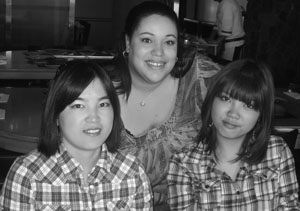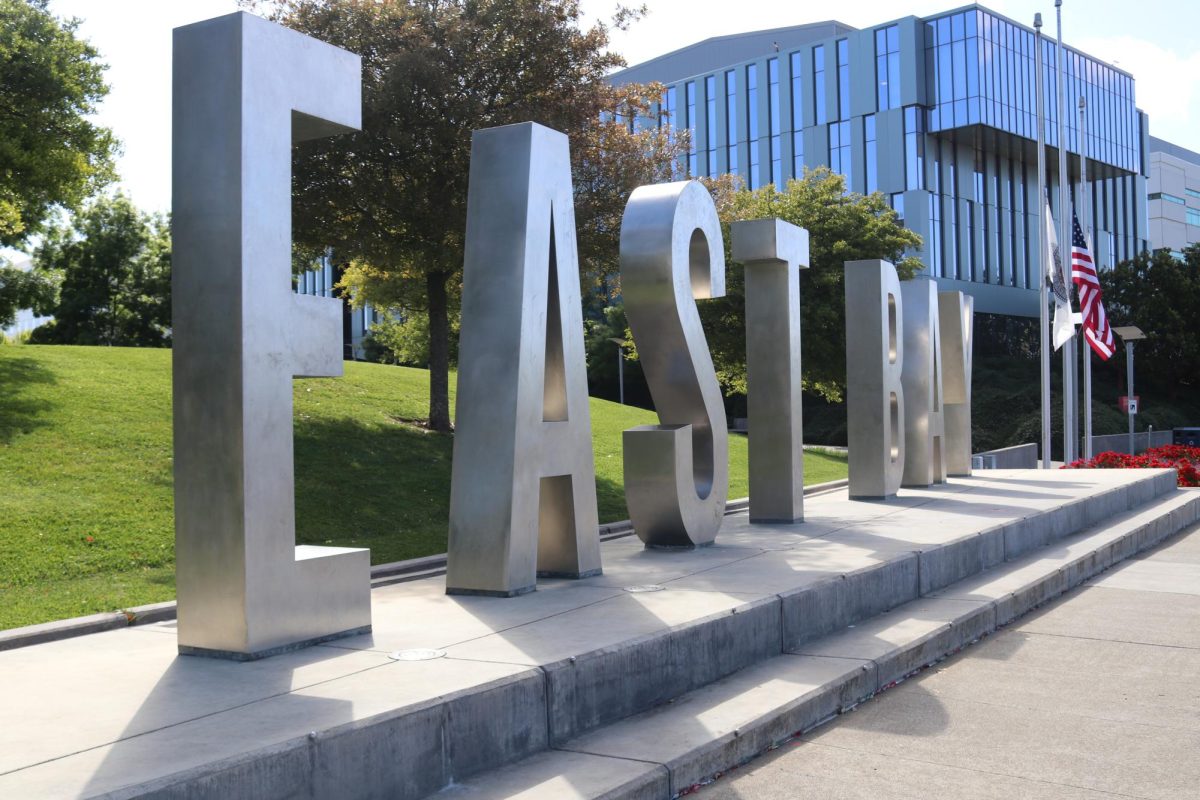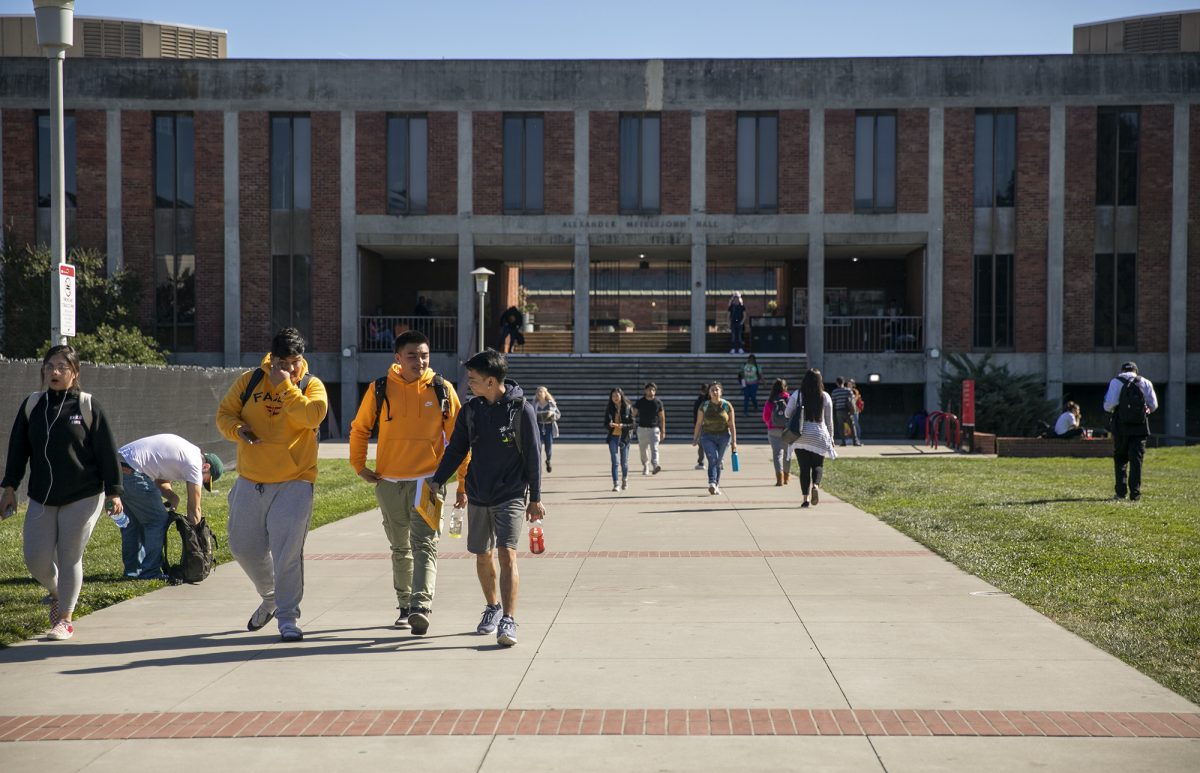
While moving to a new country and speaking a language that one is not entirely comfortable with can be scary, East Bay international students find support and practice with the Speaking Partners program here on campus.
At CSU East Bay, classes from the American Language Program (ALP) are available for international students that wish to improve upon their English.
The Speaking Partners program pairs international students with a native English speaker. The pair meets for at least an hour a week to just talk, discuss culture and other interests.
As international students speak more with a native speaker, their confidence in the English language will improve.
“Moving to the United States was one of the toughest things I’ve ever done in my life,” said Tahany Qwareeq, a former student in the Speaking Partners program. “I was very excited to be part of this wonderful country, but the fear of the unknown was great.”
Qwareeq had never spoke English before moving to the states and was worried about how she would fit in.
“We have people that are always looking to reach out,” said program director Barbara Forsberg.
After going through an English as a second language class and later the Speaking Partners program, Qwareeq was thrilled with her progress.
“The interactions I had with other students did help me to improve my English and did help me to transition into the culture,” she said. “That stage of my life was very critical, and I knew I needed to be very focused on improving my chances to go to college and to earn a college degree.”
Forsberg feels that there are many benefits for partners on each end of the program.
“For ALP students, getting them connected up with domestic students gets them out of the international student bubble,” said Forsberg. “This way they can practice speaking in a more natural environment.”
Seasoned English speakers learn from their partners, too. Familiarizing themselves with another culture can actually be helpful in supplementing courses that involve foreign affairs.
“It gives an international perspective to what they are learning in class,” said Forsberg. “In the absence of that, it always looks good on a resume.”
For native speakers, building your resume while making new friends are a few perks of the volunteer work, but for Andrew Levy, the program turned out to be a landmark.
“It helped me make up my mind that this is what I wanted to do,” said Levy.
Levy is currently working on a master’s degree so that he can ultimately teach English to immigrants in America.
Being a Speaking Partner for four quarters, Levy has learned that just talking to a student learning English can help exponentially.
“The more they hear, the more they speak English, the better they can pick it up,” explained Levy. “They don’t get that in the International House.”
Moises Loza, another seasoned Speaking Partner, shares Levy’s sentiments.
“A Speaking Partner is important because it maybe be the first time they interact with someone exclusively in English,” said Loza. “International Students are stuck in I-House most of the time, and never get the opportunity to interact with natives.”
Loza feels that Speaking Partner volunteers are so important because they help international students to not only become fluent, but to speak as a native speaker would.
“This is something that can’t be learned in a textbook,” explained Loza, “only by emmersing themselves into their environment.”
Isn’t that, after all, what many international students come here to do, to essentially adjust themselves into American culture?
“When they want a native speaker, they picture white people,” said Forsberg. “But we are all American. That’s what America is.”
Understanding the melting pot that is the United States is something that even natives to this country struggle with. Maybe the Speaking Partners program is a way for natives and non-natives alike to help each other with the concept.
“Working with people helps me to learn more about myself and I think it brings us as people closer to each other,” added Qwareeq. “Sharing our experiences and stories will help us to see how much we care for each other.”











